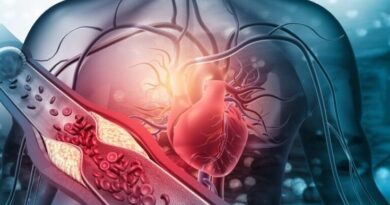Eating the Rainbow: Embracing a Colourful and Balanced Diet
Today is Friday and from today till the end of the weekend, we would interact with many plates of different delicacies because we would attend different occasions and parties because it’s Friday. It’s of utmost importance that we have a balanced diet not only during the week but also during the weekend. Eating the Rainbow: Embracing a Colourful and Balanced Diet.
It’s important to note that individual dietary needs may vary depending on factors such as age, sex, activity level, and specific health conditions. Here are some tips that can set you on a rightful balance diet for your standard of living and effective lifestyle.
Striking the perfect balance in life, it’s never by prayers or laying hands, getting a good job alone but really it is adequate nourishment of the body with a diverse range of foods. A balanced diet refers to a way of eating that provides all the nutrients, vitamins, and minerals that the body needs to function optimally.
It involves consuming a variety of foods from different food groups in proportions to maintain good health and prevent nutrient deficiencies.
Component of a Balance Diet
Protein: It is essential for the growth, repair, and maintenance of body tissues. Good sources of protein include lean meats, poultry, fish, eggs, dairy products, legumes, nuts, and seeds.
Carbohydrates: They are the primary source of energy for the body. Whole grains, fruits, vegetables, and legumes are healthy sources of carbohydrates, providing fibre, vitamins, and minerals.
Fruits and vegetables: These are rich in vitamins, minerals, and fibre. Aim to include a variety of colourful fruits and vegetables in your diet to ensure a range of nutrients.
Dairy products or alternatives: These are important sources of calcium, which is necessary for healthy bones and teeth. Choose low-fat or fat-free options such as milk, yoghurt, or fortified plant-based alternatives.
Healthy fats: Healthy fats, such as those found in avocados, nuts, seeds, and olive oil, are important for brain function, hormone production, and overall well-being. However, they should be consumed in moderation due to their high-calorie content.
Hydration: Water is crucial for maintaining proper bodily functions. Drink an adequate amount of water throughout the day and limit the consumption of sugary drinks and excessive amounts of caffeine.
Limit processed foods and added sugars: Processed foods, fast foods, and sugary snacks or beverages should be consumed sparingly. They often lack essential nutrients and can contribute to health problems when consumed in excess.
Factors that Lead to Unbalance Diets
An unbalanced diet is regarded as a lack of necessary nutrients or excessively high contents in certain components of our nutrition, which usually cause several implications for human health and well-being. It’s crucial to note that the implications of an unbalanced diet can vary depending on the specific deficiencies or excesses in the diet, as well as individual factors like genetics, lifestyle, and overall health status. Adopting a balanced and nutritious diet is essential for maintaining good health and reducing the risk of various health problems. Here are some common implications of an unbalanced diet:
- Nutrient deficiencies: An unbalanced diet may fail to provide sufficient amounts of essential nutrients, such as vitamins, minerals, proteins, or healthy fats. This can lead to deficiencies that can negatively impact various bodily functions, impair growth and development, weaken the immune system, and increase the risk of diseases.
- Weight issues: Depending on the nature of the imbalance, an unbalanced diet can contribute to weight-related issues. Excessive consumption of unhealthy fats added sugars, and processed foods can lead to weight gain, obesity, and related conditions like diabetes, heart disease, and certain types of cancer. On the other hand, a diet lacking in adequate calories and nutrients may lead to undernutrition and unhealthy weight loss.
- Poor energy levels: A diet lacking balanced sources of carbohydrates, proteins, and fats can result in low energy levels and feelings of fatigue. Without proper fuel, the body may struggle to perform daily activities, affecting productivity, mood, and overall quality of life.
- Digestive problems: Insufficient fibre intake from fruits, vegetables, and whole grains can lead to digestive issues such as constipation and irregular bowel movements. Additionally, a diet high in processed foods and low in fibre can increase the risk of gastrointestinal disorders.
- Weakened immune system: A lack of essential nutrients, particularly vitamins and minerals, can compromise the immune system’s ability to function effectively. This can increase susceptibility to infections, delay healing processes, and hinder overall immune response.
- Impaired cognitive function: The brain requires a balanced intake of nutrients to function optimally. Inadequate intake of key nutrients like omega-3 fatty acids, B vitamins, and antioxidants can impair cognitive function, memory, concentration, and overall mental well-being.
- Increased risks of chronic diseases: Unbalanced diets that are high in unhealthy fats, added sugars, and processed foods are associated with an increased risk of chronic diseases, including heart disease, stroke, type 2 diabetes, certain types of cancer, and hypertension.
Join us next week for the concluding part. Don’t forget to drop your comment and share the link with your friends. Thank you.
PICTURE CREDIT: Goodnet: Gateway to Doing Good
https://www.goodnet.org/articles/5-color-guide-to-eating-rainbow




